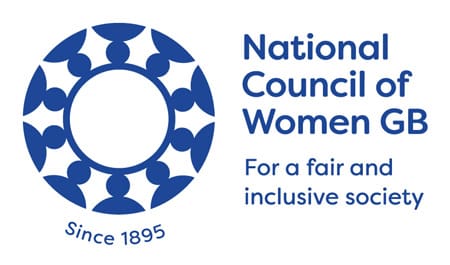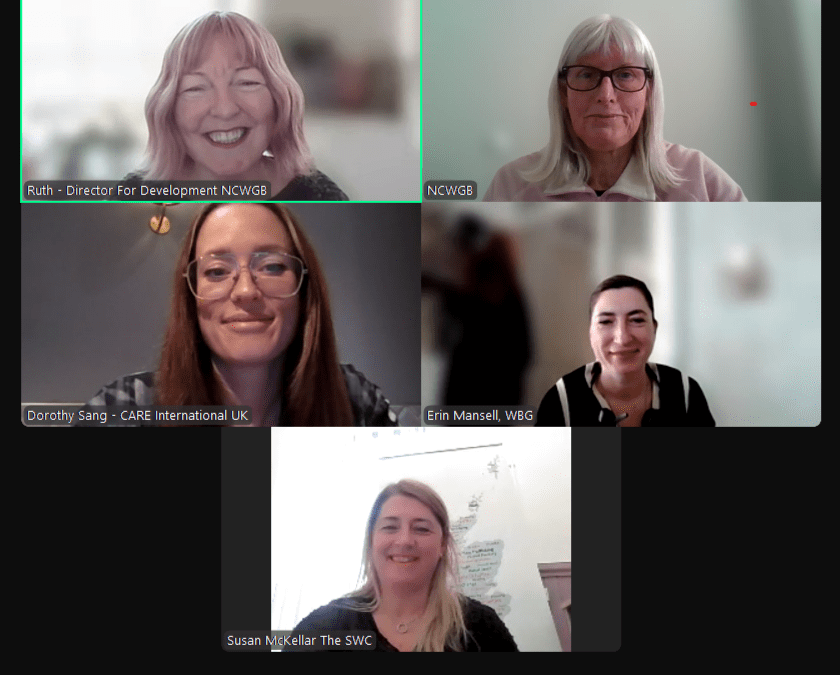Our well attended free online debate on Thursday 20th March brought together a wonderful group of inspirational speakers, Erin Mansell, Head of Communications and Public Affairs, for the Women’s Budget Group; Susan McKellar, Manager of The Scottish Women’s Convention; and Dorothy Sang, Head of Advocacy and Policy, CARE International UK. Their presentations were both educational and disheartening in equal measure. Poverty underlines so many of the disadvantages faced by women, creating a poverty trap that many will not escape.
Erin highlighted the statistical evidence, confirming that women face increasing disadvantage and discrimination. Women earn 29% less than men. Nearly ¾ of part time workers are women, with women being twice as likely to be in insecure employment with no guaranteed income. As their specific needs grow, the chance of poverty increases. 33% of working age disabled women live in poverty, compared to 18% of non disabled women. Women from the BME community are 2.5 times more likely to suffer poverty than their White British counterparts; and as women age, the pension gap leaves 19% of single female pensioners living in poverty. To put the impact of 14 years of austerity in context, women from the most vulnerable communities have lost 21% of their incomes, compared to just 2.8% from high earning men. (link to WBG)
Susan added data supporting Erin’s findings, taken directly from consultations with Scottish women during events held by the Scottish Women’s Convention. With 21% of the population (1.1 million people) living in poverty, SWC conducted on the ground research to hear from women directly impacted. They published a findings report last November. Focussing especially on those at highest risk, their research highlighted increased poverty for lone parents – especially mothers under 25 years, rural communities with high costs of accessing health care, students experiencing period poverty and victims of domestic abuse, to name a few areas. Their research concluded that women’s poverty is a precursor for child poverty. Naming prospective solutions was as important for SWC as well as evidencing issues, details of their recommendations can be found in the full report (link to report)
Dorothy, our final speaker, spoke eloquently about both the international situation and the challenges arising out of Westminster’s dramatic 50% budget cuts to women’s rights work. Care International is facing a double whammy, with cuts to foreign aid too. Poverty is sexist as it has a much bigger impact on women; for example, women make up 80% of the people displaced by war. Having recently returned from CSW69, Dorothy focussed on the impact worldwide. It’s now 30 years since the Beijing Declaration, yet governments are less engaged with women’s rights than they were then; with a significant decline in support over the last 3 months to almost zero. However, Dorothy stressed the importance of women standing together in solidarity, to address the current rise in misogyny. It’s imperative that we embrace the work of the many organisations fighting to retain and improve hard won rights. In conclusion, Dorothy noted that the countries which have a history of embracing women’s rights, have achieved the greatest social improvements, and that is something worth fighting for.
The session concluded that we all need to speak out, make our voices heard by contacting our MPs; to stand together by supporting organisations such as we four organisations, by combining events and campaigns; that we need to support younger women to maintain their confidence, so they don’t become disillusioned; that we need to take care of ourselves individually, especially when feeling overwhelmed; and sharing best practices between organisations and countries will achieve the greater good.
Photo: Top row from left: Ruth Batty, NCWGB Director for Development; Sheila Rosewell, NCWGB Administrator Secretary. Middle row from left: Dorothy Sang, CARE International UK; Erin Mansell, Women’s Poverty Group. Bottom row: Susan McKellar, Scottish Women’s Convention.

